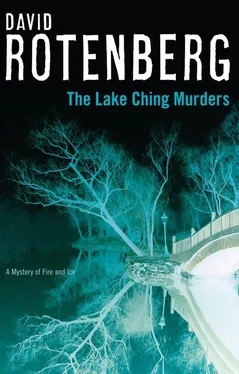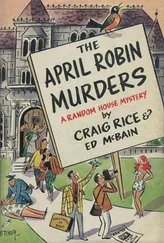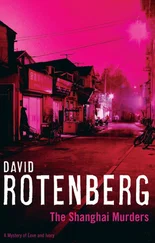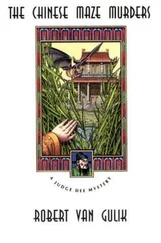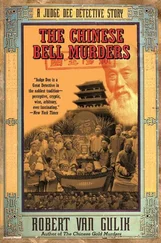David Rotenberg - The Lake Ching murders
Здесь есть возможность читать онлайн «David Rotenberg - The Lake Ching murders» весь текст электронной книги совершенно бесплатно (целиком полную версию без сокращений). В некоторых случаях можно слушать аудио, скачать через торрент в формате fb2 и присутствует краткое содержание. Год выпуска: 2011, Издательство: Schwartz Publishing Pty. Ltd, Жанр: Исторический детектив, на английском языке. Описание произведения, (предисловие) а так же отзывы посетителей доступны на портале библиотеки ЛибКат.
- Название:The Lake Ching murders
- Автор:
- Издательство:Schwartz Publishing Pty. Ltd
- Жанр:
- Год:2011
- ISBN:нет данных
- Рейтинг книги:5 / 5. Голосов: 1
-
Избранное:Добавить в избранное
- Отзывы:
-
Ваша оценка:
- 100
- 1
- 2
- 3
- 4
- 5
The Lake Ching murders: краткое содержание, описание и аннотация
Предлагаем к чтению аннотацию, описание, краткое содержание или предисловие (зависит от того, что написал сам автор книги «The Lake Ching murders»). Если вы не нашли необходимую информацию о книге — напишите в комментариях, мы постараемся отыскать её.
The Lake Ching murders — читать онлайн бесплатно полную книгу (весь текст) целиком
Ниже представлен текст книги, разбитый по страницам. Система сохранения места последней прочитанной страницы, позволяет с удобством читать онлайн бесплатно книгу «The Lake Ching murders», без необходимости каждый раз заново искать на чём Вы остановились. Поставьте закладку, и сможете в любой момент перейти на страницу, на которой закончили чтение.
Интервал:
Закладка:
This fisherman had discovered the artifact. One of his cormorants had returned to the boat with something caught in its throat. The fisherman had stuck his hand all the way down its lengthy gullet. What he came up with, after considerable tugging and much cursing, was a moss-encrusted object that he would have tossed back into the water, accompanied by the appropriate obscenity for wasted effort, had he not noted the dull sheen of metal. It was no doubt that hint of brightness that had first attracted the bird.
The old schemer pocketed the object and took it home. There he carefully chipped away the growth then polished the object which, after much attention, revealed itself to be a startlingly accurate depiction of a horse’s hindquarters and rear legs rendered in bronze. It was just over three inches in length and beautifully done – a fact that escaped the fisherman.
What didn’t escape him was the possibility that the thing might be worth something.
It took him several months of judicious asking around before he found out about Dr. Roung, the archeologist in Xian, and another few months before he made his way to the ancient capital. He’d never left the environs of the lake before. But profit was a powerful motivator.
One chilly morning, the smelly man was ushered through Dr. Roung’s office door. The archeologist had been examining the medieval Italian’s book about China that had so long puzzled him. He didn’t like puzzles he couldn’t solve. But he never considered conceding defeat. He took a last look at the book and returned it to the shelf. Without turning to face the fisherman he said, “My assistant tells me that you have something to show me?”
The fisherman looked around, not sure what to say or do.
The archeologist looked at the old man.
“Would you like a drink?”
The fisherman’s eyes widened. Dr. Roung never drank himself, but had found strong Chinese wine a useful enticement with the locals. He poured a glass. The man sat down.
Two glasses later, the man was ready to talk. “Excellency. Do you purchase ancient things? Small, ancient things?”
“From time to time I do.”
“It’s small, though,” the man said tentatively.
“Size is seldom an issue.”
The fisherman smiled then screwed up his face as if what he was about to say would cause him great pain. “What if it’s broken?” There was anxiety in the fisherman’s voice.
A brightness flashed for a moment across Dr. Roung’s face, then was gone. He took a breath. Then, with his anticipation concealed safely behind his eyes, he asked, “Cracked, you mean?”
“No, Excellency, broken – as if in half.”
The archeologist looked away from the fisherman. A few months earlier, he and his team had begun the third phase of the reclamation of the terra-cotta warriors. During the dig he had come across six small half-sculptures. All horses. All the front end – the emperor’s end. “Is it of a horse?” he asked as casually as he could manage.
The fisherman emitted a hiss.
“It is of a horse, isn’t it?”
The fisherman stumbled to his feet. “He thinks I’m a witch,” Dr. Roung thought. “Good.” He took a breath then said, “It’s worthless, old man.” He unlocked a drawer to his desk and took out the six half-horses and put them on the desk. “Worthless,” he repeated.
But the fisherman was canny. Over his many years he had done much bartering for fish and on occasion for cormorant chicks. “If they were worthless, why keep them under lock and key?” he thought. But he said nothing. Just bent his shoulders and turned toward the door.
“Show me your find, old man.”
“Why, Excellency?” The old fisherman locked eyes with the archeologist. “It has no value.”
“Show it to me.” Dr. Roung allowed a threatening tone into his voice. The fisherman heard it and backed off. Slowly he reached into his pocket and pulled out a dirty rag. Holding it in the palm of his left hand, he unwrapped the tiny thing.
The archeologist had to control his excitement. The perfect hindquarters were the first he had ever seen. His fingers itched to fit it together with one of the six frontquarters he had. His keen eye quickly eliminated the chance of a match with the first three of his horses. But horses four and six were real possibilities.
“Are there more where this came from, old man?”
The man scratched his neck, but didn’t answer.
“If you know where this came from, and are willing to show me, I’ll pay you handsomely.”
“How handsomely?” snapped back the old fisherman.
Dr. Roung stepped past the man and left the office. Moments later, he returned with a packet of kwais. He held out the bulging envelope and said, “More money than you’ll earn in ten years.”
The fisherman reached for the packet, but the archeologist pulled it away. He extracted ten 100-kwai notes and dangled them from his fingers.
The fisherman held out the small statuette.
The exchange was made.
“Now show me where you found this, old man, and the rest of the money is yours.”
The fisherman guided Dr. Roung to the lake. The archeologist had never been there before. He didn’t even know there was a large lake so close to Xian. The water was clear, and there, just off the side of the fisherman’s tippy boat, not four feet down, was a large mound. Clearly it had been man-made. The formation of the stones was very similar to those he’d unearthed with the terra-cotta warriors. It was possible that the shoal was in fact the tip of another tomb. He took out the hindquarters that the fisherman had given him. Qin period for sure. Could this be the tomb of one of the first emperor’s generals? That was who had the back end of the horses. The emperor Qin Shi Huang had kept control of the movement of troops by having these split horses made. The emperor kept the front half of each. The hindquarters were given to various generals. When a messenger arrived bearing the emperor’s part of the horse that completed theirs, the general supplied troops. Troops were power. Control of power was everything.
The archeologist saw that the fisherman was clearly uncomfortable. “Ah, he wants his money,” he thought. But he was wrong.
The obligation of hospitality is real in rural China. Despite not wanting anything to do with the archeologist, the fisherman was duty-bound to offer him a meal. Grudgingly he asked, “Would your Excellency honour my humble home by taking some food?” The archeologist was duty-bound to accept the offer.
Dr. Roung noted the landmarks to be sure he could find the shoal again, then nodded.
It was on landing that first time on the Island of the Half-wits that he saw her. Chu Shi – Jiajia’s intended. She was stooping to fill her wooden pails with water from the lake. With square shoulders and weathered skin, she was far from the elegant Han Chinese women that he’d known. Her hands were big and rough. But there was depth in her eyes.
Then she smiled at him.
He felt himself falling, somehow the ground beneath him had suddenly shifted and he was plummeting down a great chasm.
The old fisherman stared at him, a faraway look in his eyes. A knowing, no, an understanding look.
“Who is she, old lecher?”
For a moment the old man seemed openly offended and then he softened, “Not one of us. One of the farmers. One of the half-wits. They keep to themselves, Excellency.” His voice was off-centre. He took a step forward and said as casually as he could, “Perhaps Excellency would like to meet . . .”
“I will double your fee if you arrange it.”
The fisherman’s face creased with a slow, oddly sad smile that exposed his rotted teeth. “Give her this,” said Dr. Roung, holding out the small statue that he’d just bought from the fisherman.
Читать дальшеИнтервал:
Закладка:
Похожие книги на «The Lake Ching murders»
Представляем Вашему вниманию похожие книги на «The Lake Ching murders» списком для выбора. Мы отобрали схожую по названию и смыслу литературу в надежде предоставить читателям больше вариантов отыскать новые, интересные, ещё непрочитанные произведения.
Обсуждение, отзывы о книге «The Lake Ching murders» и просто собственные мнения читателей. Оставьте ваши комментарии, напишите, что Вы думаете о произведении, его смысле или главных героях. Укажите что конкретно понравилось, а что нет, и почему Вы так считаете.
